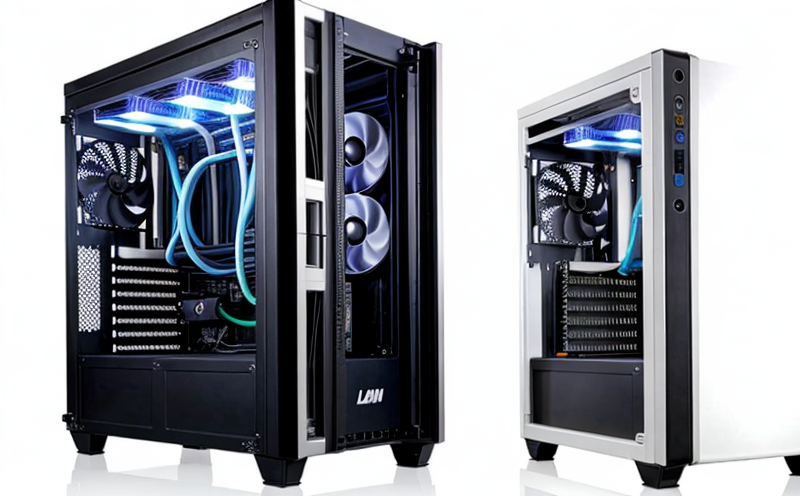ISO 16890 Air Filter Performance Impact on Capacity
The ISO 16890 standard is one of the most widely recognized international standards for air filtration systems. It provides a framework to evaluate the performance, efficiency, and classification of HVAC filters based on their ability to capture particulate matter from airflow. The standard defines four parameters that are essential in assessing filter quality: dust loading (DF), dust penetration (DP), pressure drop across the filter, and minimum efficiency reporting values (MERV).
The primary focus of this service is evaluating how air filters impact HVAC system performance, specifically through the lens of ISO 16890. This involves testing to determine if changing or replacing an air filter affects the overall capacity and efficiency of the HVAC system. The test ensures that filters maintain their rated efficiency levels under real-world conditions, which directly impacts the system's ability to perform effectively.
During this service, we simulate various operating scenarios using calibrated airflow systems. We then measure the performance metrics outlined in ISO 16890 to assess how these changes influence the filter’s capacity and overall HVAC efficiency. This is particularly important for quality managers who need to ensure that their facilities maintain optimal air quality and energy efficiency.
The process starts with careful preparation of the filters, ensuring they are clean and free from external contamination before testing begins. The test chamber used is equipped with a precision flow meter to regulate and monitor airflow accurately. We then introduce known quantities of particulate matter into the system while maintaining consistent temperature and humidity levels.
The filtration process is monitored using high-precision sensors that capture real-time data on dust loading, penetration rates, and pressure drop across each filter sample. After several cycles, we analyze the collected data to determine if there has been a significant change in performance metrics when compared to baseline readings taken before any modifications were made.
Our team uses advanced analytical software to interpret these results against ISO 16890 criteria, providing detailed reports that outline the impact of different filter types on HVAC system capacity. These insights are invaluable for compliance officers seeking to ensure their operations adhere strictly to regulatory requirements while also optimizing energy usage and improving indoor air quality.
Understanding how filters affect HVAC performance is crucial in managing costs associated with both operational expenses and maintenance schedules. By identifying which filters provide the best balance between initial cost, long-term efficiency, and environmental impact, organizations can make informed decisions that optimize their investments. This service not only helps meet regulatory standards but also supports sustainable practices within the building industry.
- Identifies optimal filter types for specific HVAC systems
- Ensures compliance with ISO 16890 standards
- Promotes energy efficiency and reduces operational costs
- Improves indoor air quality by selecting appropriate filtration levels
Why It Matters
The importance of understanding how air filters impact HVAC system capacity cannot be overstated. Inefficient filters can lead to reduced airflow, increased pressure drops within the ductwork, and higher energy consumption—all contributing factors that degrade overall system performance over time.
From a sustainability perspective, optimizing filter selection contributes significantly towards reducing carbon footprints by minimizing unnecessary energy use. For businesses operating large-scale HVAC systems, even small improvements in efficiency can translate into substantial savings over extended periods.
Moreover, ensuring compliance with industry standards like ISO 16890 is essential for maintaining a safe and healthy working environment. Poor air quality inside buildings has been linked to various health issues among employees, making it critical for organizations to invest in proper filtration solutions.
By leveraging this service, companies can gain deeper insights into their current practices, identify areas needing improvement, and implement strategies aimed at enhancing both operational efficiency and occupant well-being. Ultimately, investing in thorough testing aligns with broader goals of sustainability, cost management, and employee satisfaction.
Why Choose This Test
- Ensures compliance with international standards (ISO 16890)
- Provides comprehensive evaluation of filter performance
- Promotes energy efficiency and reduces operational costs
- Improves indoor air quality by selecting appropriate filtration levels
- Supports sustainable practices within the building industry
Competitive Advantage and Market Impact
Adopting this service provides significant competitive advantages in today’s market where sustainability and operational efficiency are increasingly important considerations for consumers. Organizations that demonstrate commitment to maintaining high standards of indoor air quality not only enhance their reputation but also attract clients seeking eco-friendly solutions.
In addition, by optimizing HVAC system performance through informed filter selection, businesses can differentiate themselves from competitors offering less effective or outdated approaches. This translates into better customer satisfaction and potentially higher sales volumes as satisfied customers become loyal patrons.
From a broader market perspective, embracing best practices in air filtration contributes positively towards reducing overall pollution levels within urban environments. As more companies adopt these measures, collective efforts towards improving public health and environmental sustainability will be realized.





